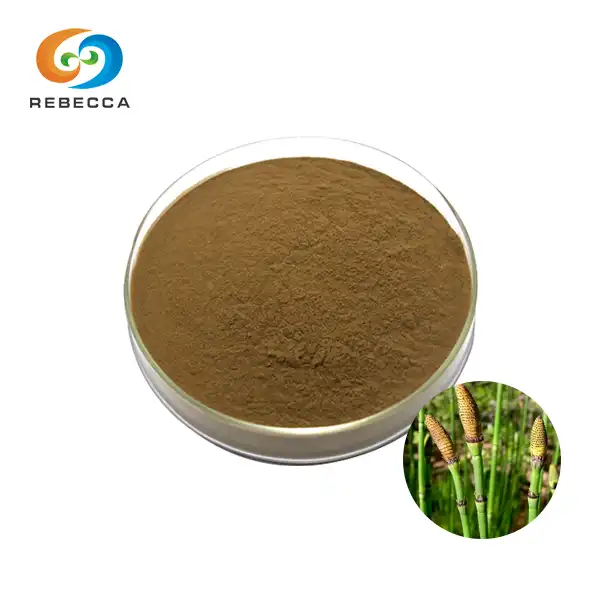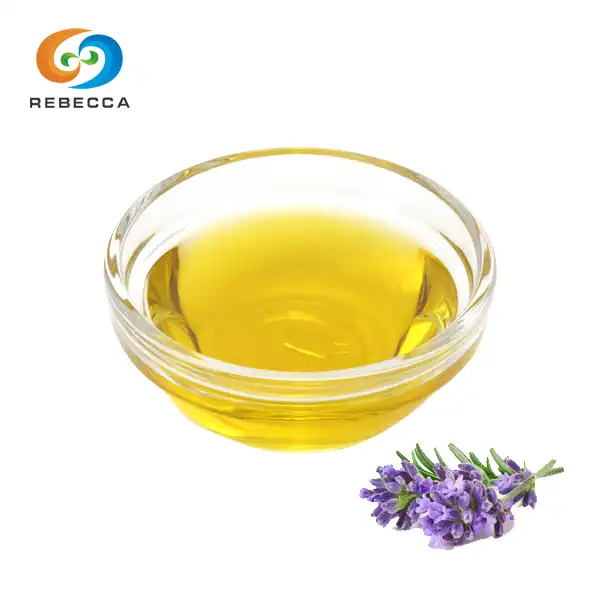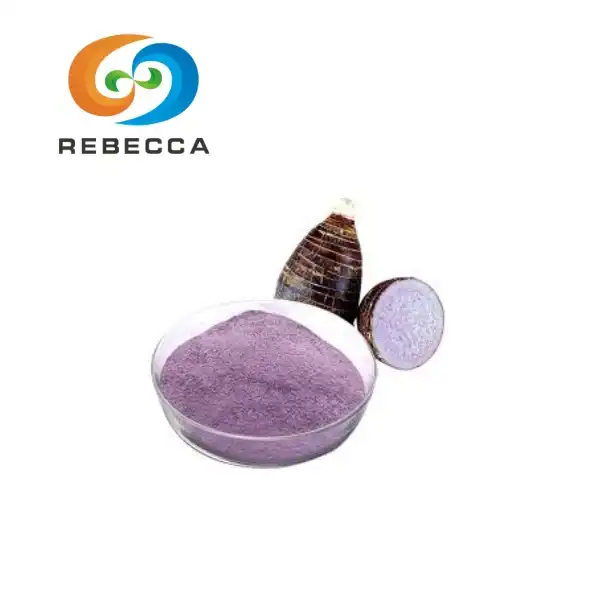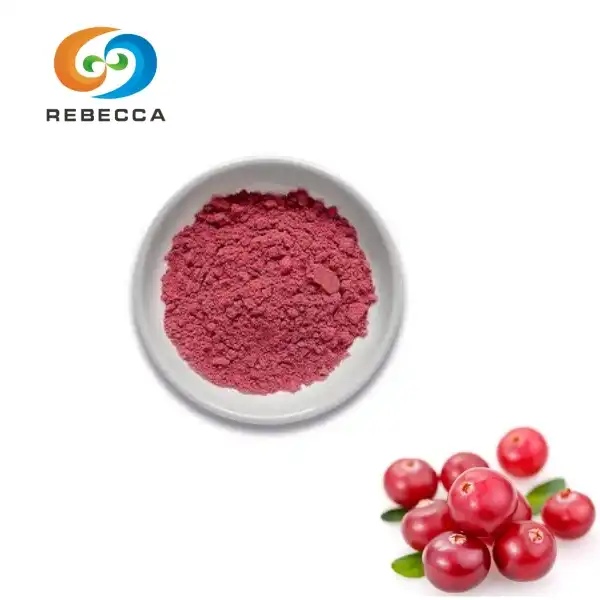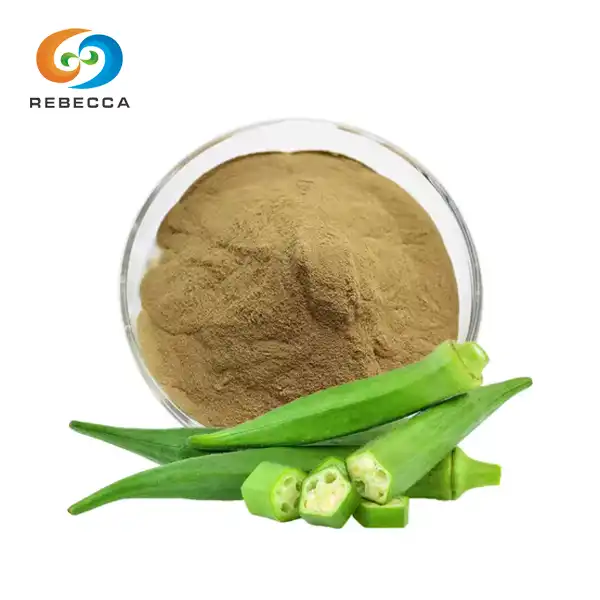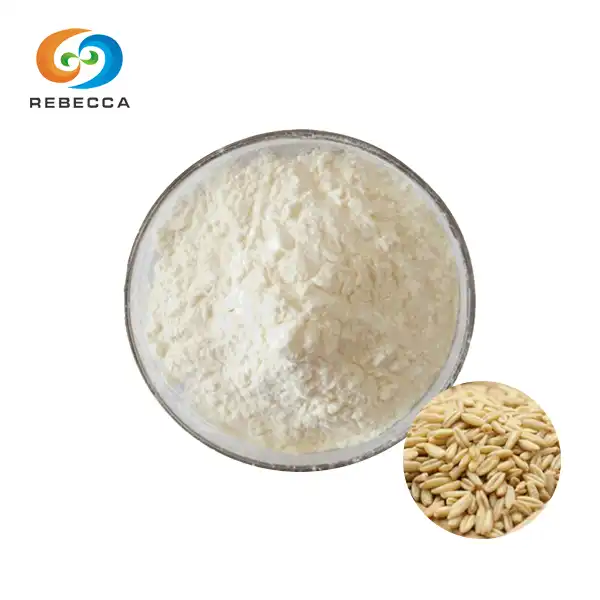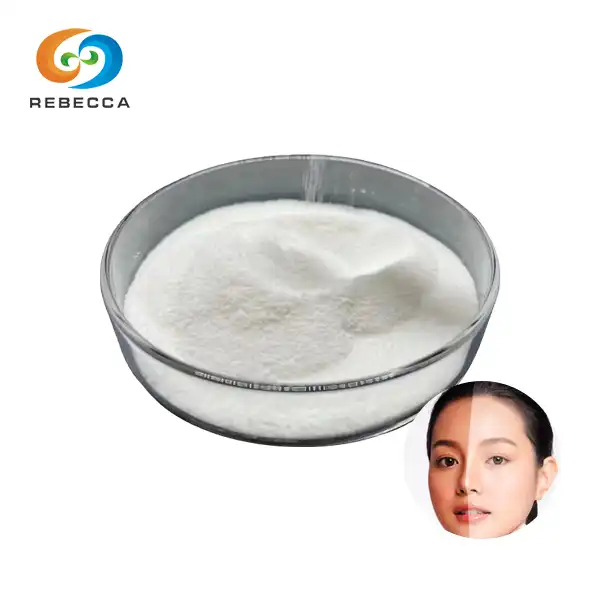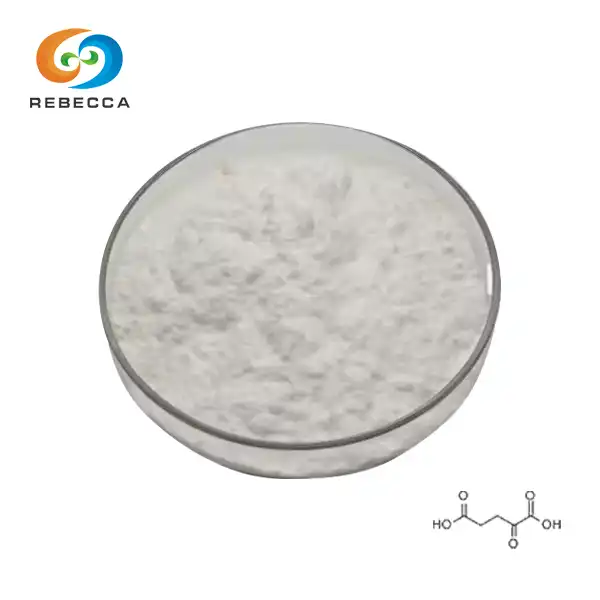Resveratrol Cas 501 36 0: A Natural Antioxidant
Resveratrol, scientifically known as Cas 501 36 0, has garnered significant attention in recent years due to its potent antioxidant properties and potential health benefits. This naturally occurring polyphenol compound, found in various plants, has become a subject of intense research and discussion in the scientific community. In this comprehensive exploration, we'll delve into the antioxidant properties of resveratrol Cas 501 36 0, its role in anti-aging, and how it compares to other antioxidants.

Understanding Antioxidant Properties of Resveratrol
Resveratrol's antioxidant properties stem from its unique molecular structure, which allows it to neutralize harmful free radicals in the body. These free radicals are unstable molecules that can damage cells, proteins, and DNA, contributing to oxidative stress and various health issues.
The antioxidant mechanism of resveratrol involves:
- Free Radical Scavenging: Resveratrol effectively neutralizes free radicals by donating electrons, which helps stabilize these damaging molecules and reduces oxidative stress.
- Boosting Endogenous Antioxidants: Resveratrol stimulates the production of the body's natural antioxidant enzymes, including superoxide dismutase and glutathione peroxidase. This enhances the body's own defense against oxidative damage, supporting overall cellular health.
- Metal Chelation: Resveratrol has the ability to bind to metal ions, preventing these metals from engaging in reactions that produce free radicals. By inhibiting these harmful processes, resveratrol helps protect cells from metal-induced oxidative stress and damage.
Research has shown that resveratrol's antioxidant activity may confer various health benefits, including cardiovascular protection, neuroprotection, and potential anti-cancer effects. Its ability to combat oxidative stress at the cellular level makes it a promising compound in the field of preventive medicine and longevity research.

The Role of Resveratrol in Anti-Aging
The anti-aging potential of resveratrol Cas 501 36 0 has been a subject of fascination for researchers and the public alike. This interest was initially sparked by studies showing that resveratrol could extend the lifespan of certain organisms, including yeast and fruit flies.
Several mechanisms contribute to resveratrol's anti-aging effects:
- Sirtuin Activation: Resveratrol has been shown to activate sirtuins, a group of proteins that play a crucial role in regulating cellular health, stress response, and longevity. This activation may help support healthier aging processes at the cellular level.
- Mitochondrial Function: Resveratrol boosts mitochondrial function, which is essential for efficient cellular energy production. By enhancing mitochondrial performance, it supports overall cellular health, helping cells to function optimally and maintain vitality.
- Telomere Protection: Some research suggests that resveratrol may protect telomeres, the protective caps at the ends of chromosomes. Telomere shortening is linked to cellular aging, and by preserving their integrity, resveratrol could potentially delay signs of aging at the cellular level.
- Inflammation Reduction: Chronic inflammation is a major contributor to aging and various age-related diseases. Resveratrol has demonstrated anti-inflammatory effects, helping to reduce inflammation in the body, which may contribute to a healthier aging process and lower the risk of age-related conditions.
While the anti-aging effects of resveratrol are promising, it's important to note that most studies have been conducted in vitro or on animal models. Human studies are ongoing, and more research is needed to fully understand the implications for human aging and longevity.

Comparing Resveratrol with Other Antioxidants
Resveratrol CAS 501-36-0 is just one of many antioxidants found in nature. To understand its unique properties, it's helpful to compare it with other well-known antioxidants:
- Vitamin C (Ascorbic Acid): While vitamin C is water-soluble, resveratrol is fat-soluble, which allows it to better protect cellular membranes and lipids. This fat-solubility enables resveratrol to penetrate and safeguard the fat-rich areas of the body more effectively.
- Vitamin E: Both resveratrol and vitamin E are fat-soluble antioxidants, but resveratrol goes beyond antioxidant protection. It has a wider range of biological activities, including supporting longevity and promoting cellular health, making it a more versatile compound.
- Quercetin: Quercetin, another polyphenol, shares structural and functional similarities with resveratrol. However, studies suggest that resveratrol has stronger effects in some areas, particularly in activating sirtuins, which play a role in aging and cellular repair.
- Curcumin: Like resveratrol, curcumin is a polyphenol with potent antioxidant and anti-inflammatory properties. When combined, they may work synergistically to enhance each other's beneficial effects on health and well-being.
Resveratrol CAS 501-36-0's unique properties include its ability to cross the blood-brain barrier, potentially offering neuroprotective benefits. It also demonstrates hormetic effects, meaning that low doses can have beneficial effects by triggering the body's stress response mechanisms.
While each antioxidant has its strengths, resveratrol's multifaceted effects on cellular health, combined with its ability to modulate various signaling pathways, make it a standout compound in the world of natural antioxidants.

Conclusion
Resveratrol Cas 501 36 0 represents a fascinating intersection of natural compounds and cutting-edge health research. Its potent antioxidant properties, combined with its potential anti-aging effects and unique biological activities, make it a compound of significant interest in the fields of nutrition, preventive medicine, and longevity research.
As research continues to unfold, we may discover even more about the potential benefits and applications of this remarkable natural antioxidant. While resveratrol supplements are widely available, it's always advisable to consult with a healthcare professional before adding any new supplement to your regimen.
For those interested in exploring high-quality resveratrol products or learning more about natural antioxidants, please feel free to contact us at information@sxrebecca.com. Our team of experts is always ready to provide guidance and information on the latest developments in natural health compounds.
References
1. Baur, J. A., & Sinclair, D. A. (2006). Therapeutic potential of resveratrol: the in vivo evidence. Nature Reviews Drug Discovery, 5(6), 493-506.
2. Walle, T. (2011). Bioavailability of resveratrol. Annals of the New York Academy of Sciences, 1215(1), 9-15.
3. Borra, M. T., Smith, B. C., & Denu, J. M. (2005). Mechanism of human SIRT1 activation by resveratrol. Journal of Biological Chemistry, 280(17), 17187-17195.
4. Ramírez-Garza, S. L., Laveriano-Santos, E. P., Marhuenda-Muñoz, M., Storniolo, C. E., Tresserra-Rimbau, A., Vallverdú-Queralt, A., & Lamuela-Raventós, R. M. (2018). Health effects of resveratrol: Results from human intervention trials. Nutrients, 10(12), 1892.
5. Smoliga, J. M., Baur, J. A., & Hausenblas, H. A. (2011). Resveratrol and health–a comprehensive review of human clinical trials. Molecular Nutrition & Food Research, 55(8), 1129-1141.
_1730691017423.webp)










